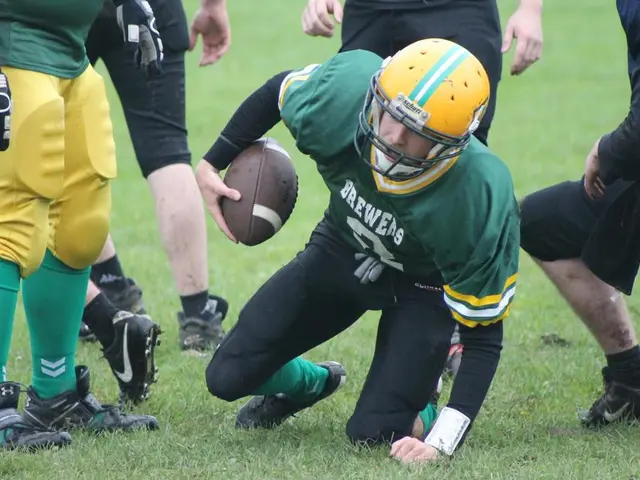Republicans in targeted districts facing voter discontent over Trump elusive for irate constituents
In the heart of Pennsylvania, the offices of Rep. Scott Perry have been curiously quiet. Over the last couple of weeks, his team has been holding back on sharing public appearances, and even his loyal supporters can't recall the last time he hosted a town hall. Ringing the bell at his district office in Mechanicsburg only results in a male voice through the intercom saying he has no information to share.
This recess period, traditionally known as the district work period, usually finds members of Congress returning home to focus on their constituents. But some of the most vulnerable Republicans have second thoughts about facing the potential backlash from President Trump's first months in office, and have decided to lay low.
One of the ten most vulnerable House Republicans, Rep. Perry, has been hard to find during the recess. His schedule inconsistencies complicate attempts at verification, although it's safe to say that he hasn't been hosting public events. In fact, none of the swing-district conservatives from across Arizona, Colorado, California, Iowa, Nebraska, Pennsylvania, and Wisconsin have been seen in public either – not a single open event has been held, and only one planned a tele-town hall. Instead, they preferred small, invitation-only gatherings with local officials, promotions of which only occurred after the event was over.
The lack of access has left a bitter taste in the mouths of some voters. Republican voter Robert Barton, a 57-year-old civil engineer, waited for his lunch at a pizzeria across the street from Perry's office, commenting, "They're publicly elected officials. They ought to be accessible to the public." The team representing Perry did not respond to requests for comment.
A Clever Strategy or a Duck and Cover Maneuver?
Justifying their strategy, veteran GOP strategist Doug Heye argues that carefully planned and controlled interactions are more productive for members of Congress than traditional town halls. "And that's smart for any politician," he explained. The National Republican Congressional Committee (NRCC), the House Republicans' campaign arm, insists it is not encouraging its members to hide from the public eye.
Despite their assertion, the Republicans are being accused of ducking public events, much like Democrats did in 2010 during the healthcare overhaul debates, when they skipped public events after facing angry town halls the previous summer. At that time, Democratic Speaker Nancy Pelosi co-wrote an opinion piece referring to some protests as "un-American" and denouncing an "ugly campaign [to] disrupt public meetings and prevent members of Congress and constituents from conducting a civil dialogue."
Fast forward almost a decade, and House Republicans are facing accusations of avoiding town halls while trying to repeal the very same healthcare law. In 2018, then-House Speaker Paul D. Ryan (R-Wis.) opted to limit town halls to control access for protesters outside his district. Unfortunately for him, this move led to a loss of the House majority a few election cycles later.
The Democrats' Counterattack
As the Republicans avoid public events, the Democrats are stepping up their game, launching a series of "People's Town Halls" and "Good Trouble" events in districts where Republicans won't hold public events. The phrase "good trouble" was coined by the late congressman and civil rights icon John Lewis to describe principled political resistance.
Democrats believe that by taking the lead in public events, they will have a competitive edge in the 2026 midterm elections, which will determine the course of Trump's final term. With a majority in the White House, the historically incumbent party tends to lose seats in the first midterm cycle, and as of now, even small losses would mean Republicans would lose their House majority.
As Republican National Committee Chairman Michael Whatley recently stated at an Iowa Faith and Freedom fundraiser, the 2022 midterm elections will decide whether there will be a four-year presidency or a two-year presidency. With stalled agendas and potential investigations looming, he warned of a similar scenario to the one faced by Trump during his first term.
Hiding in Plain Sight
In Iowa, Republican Rep. Mariannette Miller-Meeks, who won by 799 votes, the closest House election in the country, opted to meet with smaller groups in more controlled environments during the Easter recess, such as a wheel accessory plant, several business groups in the Des Moines and Davenport areas, a Rotary Club meeting, and a groundbreaking for an eastern Iowa medical center. Most of her constituents only learned of these stops after checking her social media accounts after the fact, as she gave little, if any, notice before her appearances.
Like other most-targeted Republican House members, Miller-Meeks has no public events planned for the remainder of the district work period. Rep. Don Bacon, who represents Nebraska's 2nd Congressional District, holds no open events nor has any planned before the end of the break.
A Test of Democratic Resilience
In Perry's Harrisburg-area district, Democrats are optimistic that they are well-positioned to defeat the seven-term Republican, former chairman of the hard-right House Freedom Caucus. After narrowly defeating Democrat Janelle Stelson, a former local television broadcaster, in November, Stelson expects to start another campaign against Perry in July.
"The title of the job is 'representative.' It's not actually about you, it's about what the people you talk to care about and want you to accomplish for them," she said. "And I don't understand how he can possibly know what that is when he's never out among us."
Some voters have taken notice. Tim Shollenberger, a Mechanicsburg resident and former Republican, struggled to be heard during Perry's tele-town hall. Particularly frustrated by Perry's lack of public access, he submitted three questions he would have asked the representative, if only they had been given the chance. With questions about Elon Musk's critical comments on Social Security and Perry's unexpected invisibility, the moderator ignored them all.
"If you really care about the views of your constituents, get in a room and face them," Shollenberger said.
- Despite Rep. Scott Perry's office being quiet in Mechanicsburg, Pennsylvania, some voters feel that publicly elected officials should be accessible to the public.
- Vetern GOP strategist Doug Heye argues that controlled interactions are more productive for politicians than traditional town halls.
- The National Republican Congressional Committee (NRCC) insists it is not encouraging its members to hide from public eye, but some Republicans are being accused of doing just that.
- Democrats are accusing House Republicans of avoiding town halls, reminiscent of Democrat skips in public events during the healthcare overhaul debates in 2010.
- Democrats are stepping up their game by launching "People's Town Halls" and "Good Trouble" events in districts where Republicans won't hold public events.
- The Democrats believe that by taking the lead in public events, they will have a competitive edge in the 2026 midterm elections.
- Minority Whip Steve Scalise (R-La.) has encouraged members to make themselves available to the news media for interviews and town halls.
- In California, many Democrats are shifting their focus to local issues, such as Orange County water management andModule:Nndc|city=California|state=California, due to the political environment on a national scale.
- Senator Dianne Feinstein (D-Calif.) has warned that California's environment and climate change are at stake in the 2022 elections.
- The future of California's politics hangs in the balance as Democrats and the new governor, Gavin Newsom, face off concerning policy-and-legislation and war-and-conflicts.
- As the environment remains a top concern for many California voters, car-accidents, especially in the city, have become a point of contention in the political discourse.
- In addition to the environment, health, crime-and-justice, and general-news discussions are also common in California politics.
- In the entertainment industry, opinions about political figures and issues are often shared on television, highlighting the interconnection of politics and the movement of people (migration) into California, especially from the Midwest and the South.
- While football (American football, NFL, and NCAA Football) takes the forefront in the sports discussion in California, issues concerning law and business are also significant in the state's politics.








